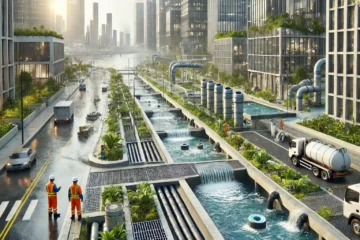The Future of Smart Lighting
Smart technology has revolutionized countless aspects of our lives, and lighting is no exception. Smart lighting systems are rapidly evolving, offering a glimpse into a future where our homes and workplaces are not only well-lit but also highly personalized and energy-efficient.
What are Smart Lighting Systems?
At their core, smart lighting systems are interconnected networks of light fixtures that can be controlled remotely, often through a smartphone app or voice commands. These systems offer a range of features, including:
- Remote Control: Adjust the brightness and color temperature of your lights from anywhere in the world.
- Scheduling: Create custom lighting schedules to automate your lighting needs.
- Voice Control: Control your lights with simple voice commands.
- Scene Creation: Preset lighting scenes for different moods and activities, such as “movie night” or “work mode.”
- Energy Efficiency: Optimize energy consumption by automatically turning off lights when rooms are unoccupied.
The Future of Smart Lighting: A Brighter Outlook
As technology continues to advance, we can expect even more innovative features and applications for smart lighting systems: - Biodynamic Lighting: By mimicking natural daylight cycles, biodynamic lighting can improve sleep quality, productivity, and overall well-being.
- Health and Wellness Integration: Smart lighting systems can be integrated with other health and wellness devices to create personalized lighting environments that promote relaxation, focus, and energy.
- Enhanced Security: Smart lighting can deter intruders by simulating occupancy when you’re away from home.
- Increased Energy Efficiency: Future smart lighting systems will become even more energy-efficient, reducing your carbon footprint and saving you money.
- Seamless Integration with Smart Homes: As smart home technology continues to evolve, smart lighting systems will become even more seamlessly integrated with other devices, creating a truly connected living space.
Real-World Applications and Benefits
Smart lighting systems offer a wide range of practical benefits: - Improved Quality of Life: By creating personalized lighting environments, smart lighting can enhance mood, productivity, and overall well-being.
- Enhanced Home Security: Smart lighting systems can deter intruders by simulating occupancy when you’re away from home.
- Energy Savings: By optimizing energy consumption, smart lighting can significantly reduce your energy bills.
- Increased Convenience: Remote control, scheduling, and voice control make it easy to manage your lighting.
- Aesthetic Appeal: Smart lighting can add a touch of elegance and sophistication to any space.
Challenges and Considerations
While the future of smart lighting is bright, there are still some challenges to overcome: - Initial Cost: Smart lighting systems can be more expensive than traditional lighting solutions.
- Technical Complexity: Some smart lighting systems can be complex to set up and configure.
- Reliability and Compatibility: Ensuring compatibility with different smart home devices and maintaining system reliability can be challenging.
Conclusion
The future of smart lighting is filled with exciting possibilities. As technology continues to advance, we can expect to see even more innovative and sophisticated smart lighting solutions. By embracing these technologies, we can create more comfortable, efficient, and personalized living and working environments.


